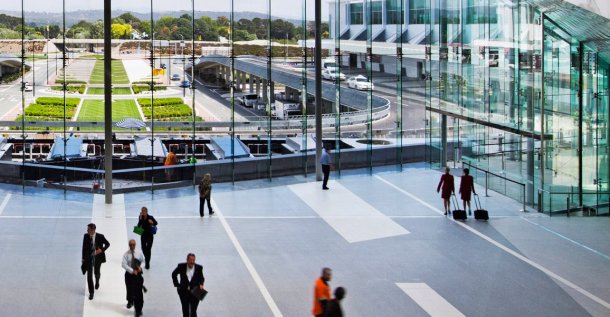
In a story in which an airport is the proxy for the economy that surrounds it, this report in the Canberra Times begs a broader debate.
Is there the room, and community wish, for a more prosperous Canberra economy less dependent on political travel and which might exploit a tax haven or business friendly status that might be termed the Dubai option, or maybe, to avoid hyperbole, the Port Vila or Luxembourg option?
The Canberra Times article is all about the interests of its privately owned airport, which has spent large on impressive rebuilding and expansion just in time to meet Public Service austerity.
While tax havens as such would not be possible under Australian law and practice, competitive offers to enterprises that generate economic activity and expand community wealth and the public revenues that flow from them to locate in one part or other of Australia are another matter.
A key advantage of Canberra is not that its airport might be useful as an alternative airport to Sydney, which is as ridiculous as making Washington Dulles airport an alternative to JFK airport, but one that is geographically potent for a city hosting enterprises that are not only congruent with the centre of political power, but able to use a convenient airport of almost unlimited future capacity that can provide practicable links to the rest of the country including non-stop flights to important hubs like Singapore, Hong Kong, Dubai, Abu Dhabi as well as major Asia hemisphere cities in their own right.
In short, it could be a discussion about whether moving businesses to Canberra is a far more realistic scenario for growing Canberra Airport than enticing Sydney airport users to waste the time and money to head for the Majura Plains.
Is the future for Canberra one in which Sydney is just a side trip, to a city that has never managed to get out of its own way when in comes to consistent and intelligent transport infrastructure investments?








Crikey is committed to hosting lively discussions. Help us keep the conversation useful, interesting and welcoming. We aim to publish comments quickly in the interest of promoting robust conversation, but we’re a small team and we deploy filters to protect against legal risk. Occasionally your comment may be held up while we review, but we’re working as fast as we can to keep the conversation rolling.
The Crikey comment section is members-only content. Please subscribe to leave a comment.
The Crikey comment section is members-only content. Please login to leave a comment.